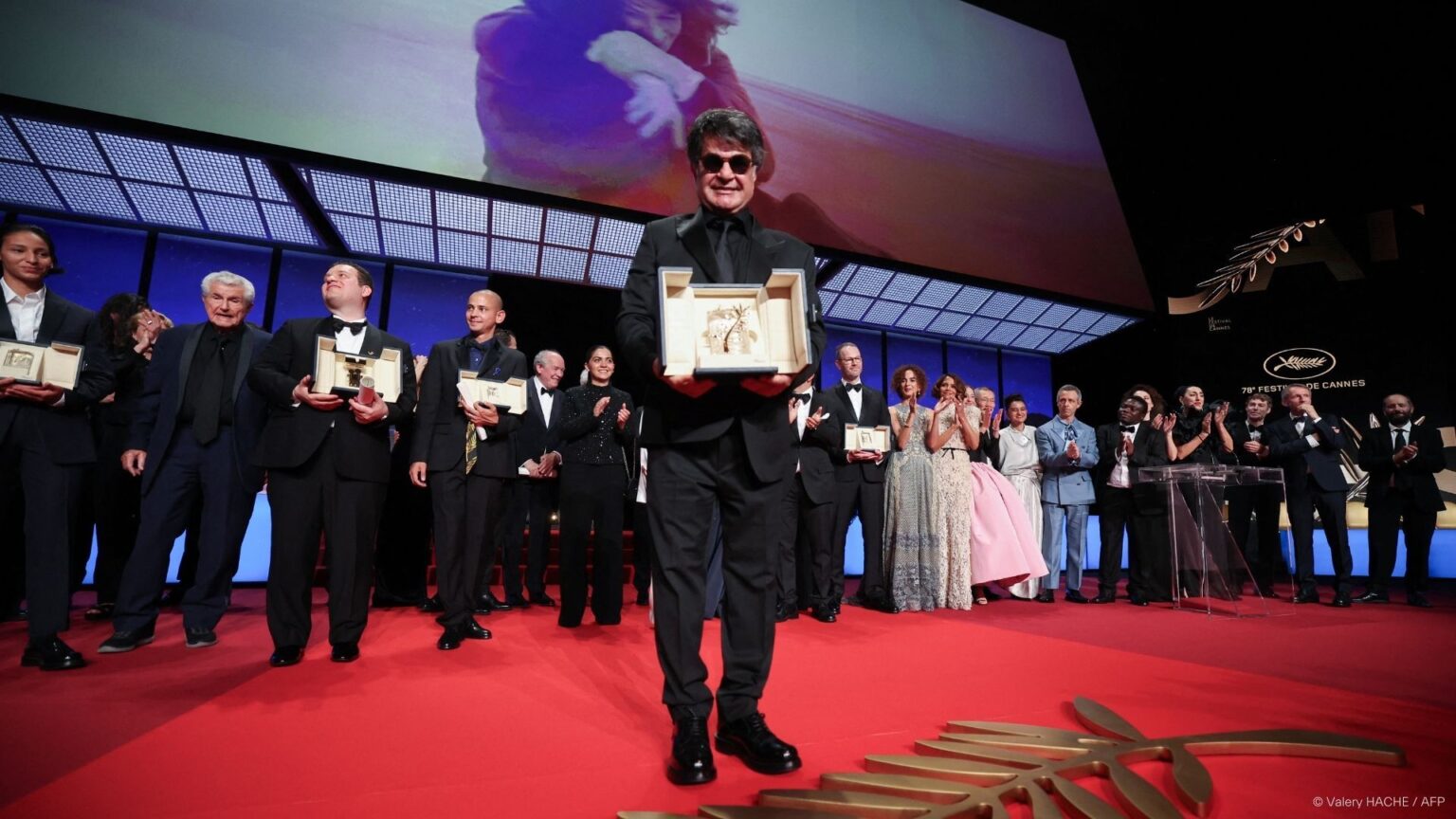Iranian director Jafar Panahi has won the Palme d’Or at the 78th Cannes Film Festival with A Simple Accident. It’s a political and poetic film about the excesses of the Islamic State.
A big favorite at the Cannes Film Festival, A Simple Accident, one of 22 films in competition, was finally awarded the Palme d’Or after 12 days of competition. It succeeds Anora, a fake Cinderella story by Sean Baker, winner of the Palme d’Or in 2024.
Jafar Panahi, its director, threatened in his native Iran and banned from practicing his profession, had to work underground to make this road movie which, like the parable evoked by jury president Juliette Binoche about art, “provokes, questions, and upsets.”
This award clearly illustrates the political tone of this 78th edition, at a time of rising extremism around the world.
Resistance celebrated
In awarding Jafar Panahi’s 11th feature film, the jury sought, according to its president Juliette Binoche, to honor “a gesture that is above all artistic and human, and therefore eminently political.” She continued, “This is a film that emerges from a place of resistance and survival, which is completely necessary today. Fifteen years ago, Jafar was in prison, but art will always win.”
It was in the jails of the Islamic Republic that director Jafar Panahi found the inspiration for his latest film, which deals with arbitrariness without putting himself in the frame, a first in his filmography.
A plea for humanity
A Simple Accident is presented as a road movie that questions humanity at its core, as well as forgiveness.
The characters in the film come face to face with their former torturer who subjected them to the worst kinds of abuse (rape, humiliation, etc.). They had been thrown in prison under the Mullahs’ regime for demonstrating for better living conditions.
During a routine car accident, a worker believes he recognizes the sound of his former torturer’s prosthetic leg and plots his abduction with a small team in a pickup truck. Alongside the worker are a couple in wedding attire with their photographer, as well as another accomplice.
In this film, which is by turns tragic, comical, and even poetic, the viewer wonders about the fate of this executioner turned hostage, who also turns out to be the husband of a woman about to give birth and the father of a family. But the director goes further by exploring the daily lives of Iranians.
An opponent of the regime
As Juliette Binoche points out, this award is all the more moving as it is the first time in 15 years that the 64-year-old filmmaker has been able to receive his award in person at Cannes. In 1995, his first feature film, The White Balloon, won him the Caméra d’Or. He then won the Jury Prize in the Un Certain Regard section in 2003 for Blood and Gold. In 2018, his film Three Faces won the Best Screenplay Award at Cannes.
In addition to the Palme d’Or at Cannes, this son of a craftsman from the poor neighborhoods of Tehran has won the most prestigious awards in the world of cinema, including a Golden Lion at the Venice Film Festival in 2000 for The Circle, followed by a Golden Bear at the Berlinale in 2015 for Taxi Tehran.
His life was turned upside down in 2010 when he was imprisoned for 86 days for “propaganda against the regime” following his support for the 2009 protest movement against the re-election of the ultra-conservative Mahmoud Ahmadinejad. Hit with a 20-year ban on directing and writing films, leaving Iran, or speaking to the media, this disciple of Abbas Kiarostami was thrown back in jail for seven months between 2022 and 2023. He’s also been under house arrest, censored, and received death threats. Defying the ban, he continued to make films clandestinely, even directing his crews via videoconference from the Turkish border.
Way Back Home
Upon receiving the Palme d’Or from American actress Cate Blanchett, the filmmaker dedicated his award to “all the artists who have had to leave Iran,” thanking his “committed team” without whom the film would never have seen the light of day. He took the opportunity to remind everyone that “cinema is a society where no one has the right to say what should be included or what should be said.”
When asked about his intentions to return to his native country, his lawyer told AFP that such a return did not “scare him at all.” In an Instagram post, he simply wrote, “travelers return home.”
In Iran, only a few conservative media outlets denounced a “political price” to be paid for tarnishing Iran’s image, while also criticizing the fact that the actresses were not wearing headscarves. Although no officials have commented on this second Palme d’Or for an Iranian director after Abbas Kiarostami, Jafar Panahi is not completely out of the woods yet.
Read also > Cannes Film Festival: James Horner composed the music for the opening ceremony!
Featured image: © Cannes Film Festival














